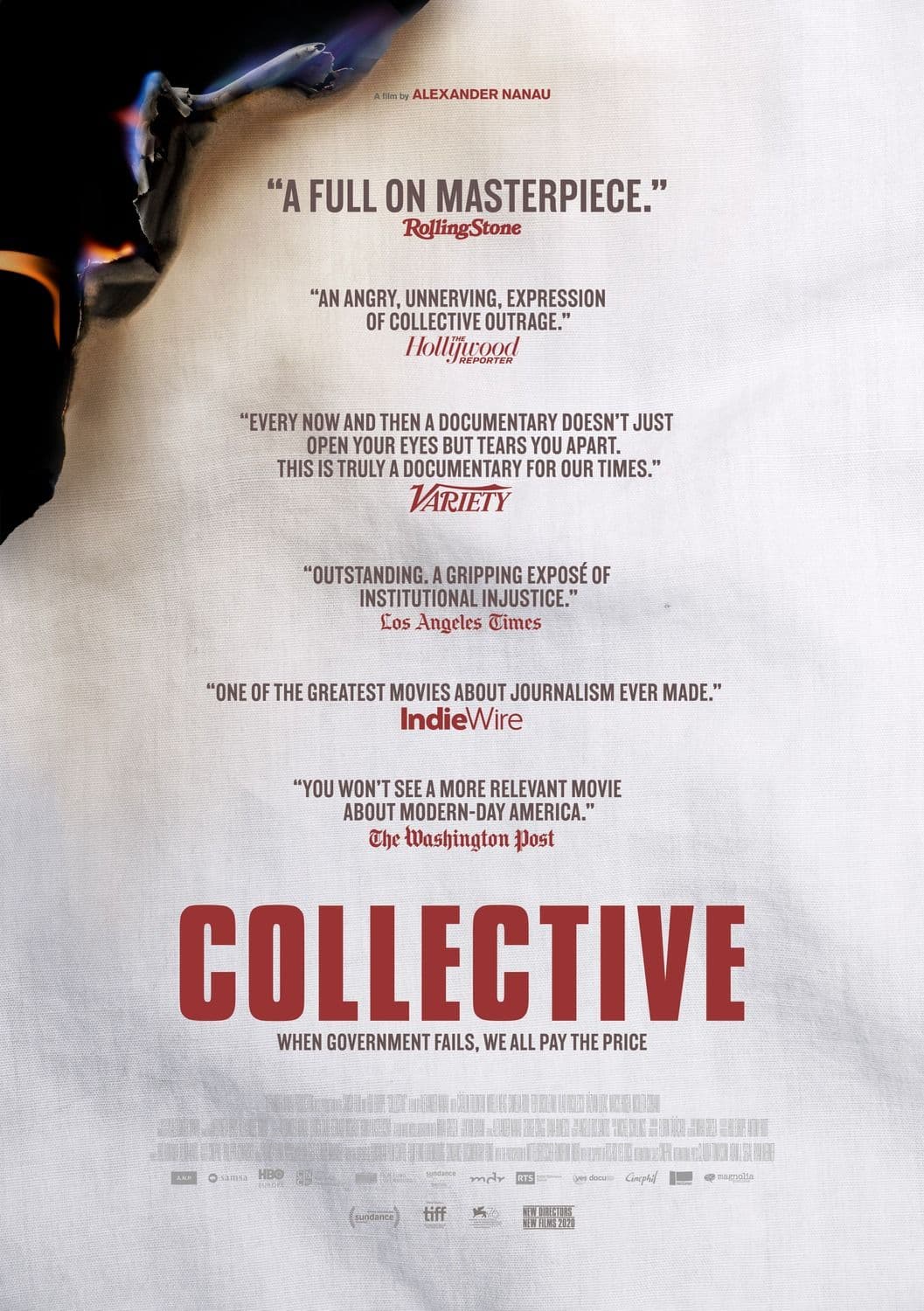
Collective
2019
Rate this movie
Average: 5.00 / 5
(1 votes)
Director
There are films that entertain, films that move, and films that educate. And then there are works like Alexander Nanau's Collective (Colectiv in Romanian), a punch to the gut delivered with the precision of a scalpel, a documentary that transcends its genre to become a breathtaking political thriller, an essay on civic ethics, and, above all, a ruthless manifesto on the fragility of democracy in the face of the metastasis of corruption. It is not simply a film; it is an indictment, a piece of investigative journalism so powerful it shakes the foundations of a nation and resonates as a universal warning.
The narrative begins with a national tragedy: on October 30, 2015, a fire broke out in the Colectiv nightclub in Bucharest during a concert. The initial toll was 27 deaths, but in the following weeks, the number soared. The victims died not only from burns but from bacterial infections contracted in Romanian hospitals, facilities that the government claimed met the best European standards.
It is here that Nanau's film bifurcates into two parallel and converging narrative threads. On one side, we follow the editorial team of a sports newspaper, Gazeta Sporturilor, led by the tenacious Cătălin Tolontan. A group of sports journalists, initially outsiders to political journalism, begins to investigate the strange deaths. Their investigation uncovers a Pandora's Box of terrifying scope: the disinfectants used in hospitals throughout Romania are systematically and massively diluted by the pharmaceutical company Hexi Pharma, resulting in an effectiveness of less than 10% of what was declared. A criminal system protected by decades of silence, bribes, and political omertà.
On the other side, after the resignation of the social-democratic government, overwhelmed by popular anger, Nanau's camera enters the offices of the new Minister of Health, Vlad Voiculescu. A young technocrat, a patient rights activist, who finds himself leading a ministry rotten to the core. Voiculescu is our Sisyphus, an idealist desperately trying to push the boulder of reform up a mountain of hostile bureaucracy, entrenched interests, and corruption so endemic it has become the norm. His heroic and frustrating attempt to bring transparency clashes with the reality of a necrotized state apparatus.
Collective is incisive because it is not content with finding a single "bad guy." The film does not demonize the CEO of Hexi Pharma (who dies in a mysterious car accident) nor individual politicians. Nanau's erudition lies in diagnosing a systemic pathology. Corruption is not an anomaly, but the operating system itself. Every cog is lubricated by lies: from hospital managers who certify falsehoods to politicians who deny the evidence, up to an entire ruling class that has internalized crime as administrative practice.
The film is a masterful lesson on the role of the "Fourth Estate." In an era of journalistic crisis, Collective shows us the essential meaning of its function: not shouting opinions, but methodical investigation, source verification, the courage to challenge power with facts. The editorial team of Gazeta Sporturilor becomes the last bastion of civil society, an antibody that the system seeks to neutralize in every way.
The figure of Vlad Voiculescu, on the other hand, is the tragic representation of the impotent reformer. His honesty and competence are not enough. He discovers, and we with him, that the system is not simply "broken" and therefore fixable; it is designed to resist change, to expel any foreign body that threatens its putrid equilibrium. The outcome of the subsequent elections, which saw the return to power of the party ousted from the public square, is the bitter seal on this diagnosis: truth, alone, does not always win.
To fully understand the scope of Collective, it is essential to place it within the context of its national cinematography: the Noul Val Românesc (Romanian New Wave). Starting in the early 2000s, a generation of directors who emerged after the fall of Ceaușescu began to depict post-communist Romania with a distinctive style: austere realism, long and relentless single takes, black humor, and an almost clinical dissection of bureaucratic dysfunctions and moral ambiguities.
Collective is the legitimate child, and perhaps the non-fiction apotheosis, of this movement. The themes that Nanau documents with factual evidence had already been metaphorically explored by this cinema:
The Death of Mr. Lăzărescu (Moartea domnului Lăzărescu, 2005) by Cristi Puiu is the most direct precursor. Narrating the nocturnal odyssey of an elderly patient bounced from one hospital to another, Puiu had already painted a portrait of a collapsing healthcare system, inhuman and Kafkaesque. Collective shows the lethal consequences of that system.
This "rebirth" of Romanian cinema is not an isolated phenomenon, but fits into a broader tradition of Eastern European cinema as a cinema of critical conscience. There are surprising parallels with past movements. Contemporary Romanian cinema has inherited this function as a critical mirror, but with a substantial difference. It no longer primarily needs to resort to allegory to escape censorship. It can be direct, brutal, explicit. Collective represents the culmination of this evolution: cinema no longer merely represents reality, but investigates and directly influences it, becoming an actor in public debate itself.
In conclusion, Collective is a documentary that operates with the tension of an Alan J. Pakula thriller and the analytical depth of a sociological essay. It leaves us indignant, shaken, but also with a sharper awareness: democracy is not a given, but a daily exercise in vigilance. And in this battle, free journalism and courageous cinema are not a luxury, but an absolute necessity. A necessary masterpiece.
Main Actors
Genres
Countries
Gallery
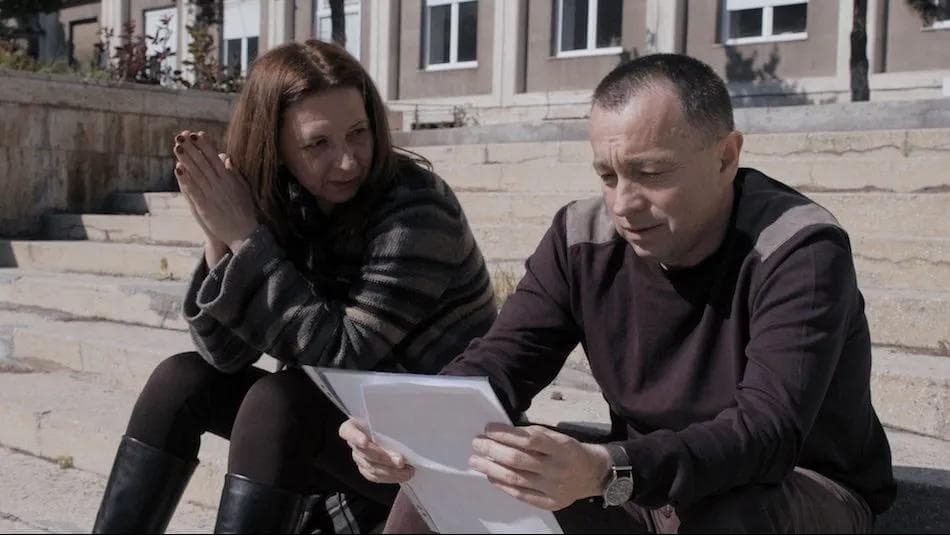
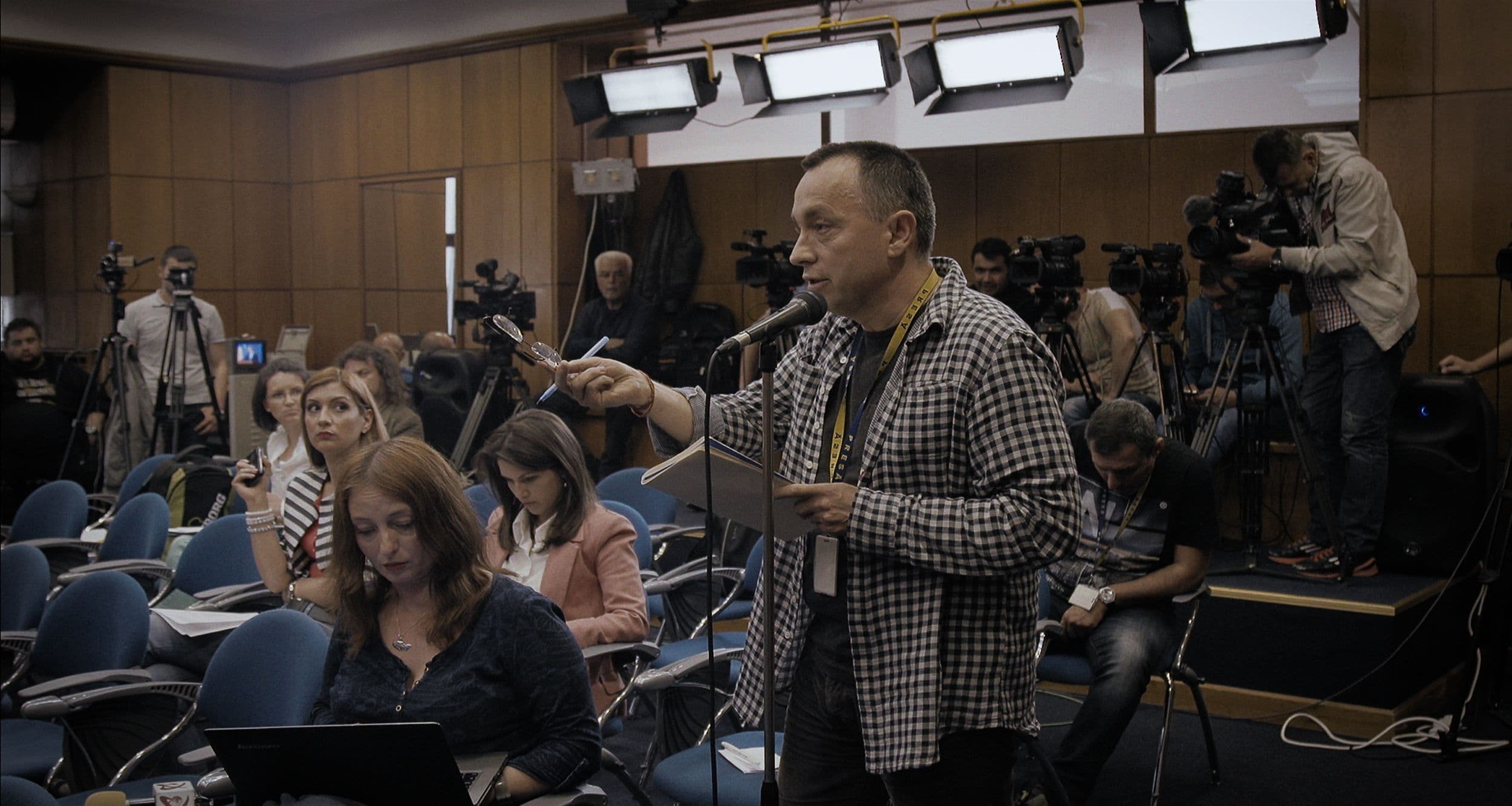
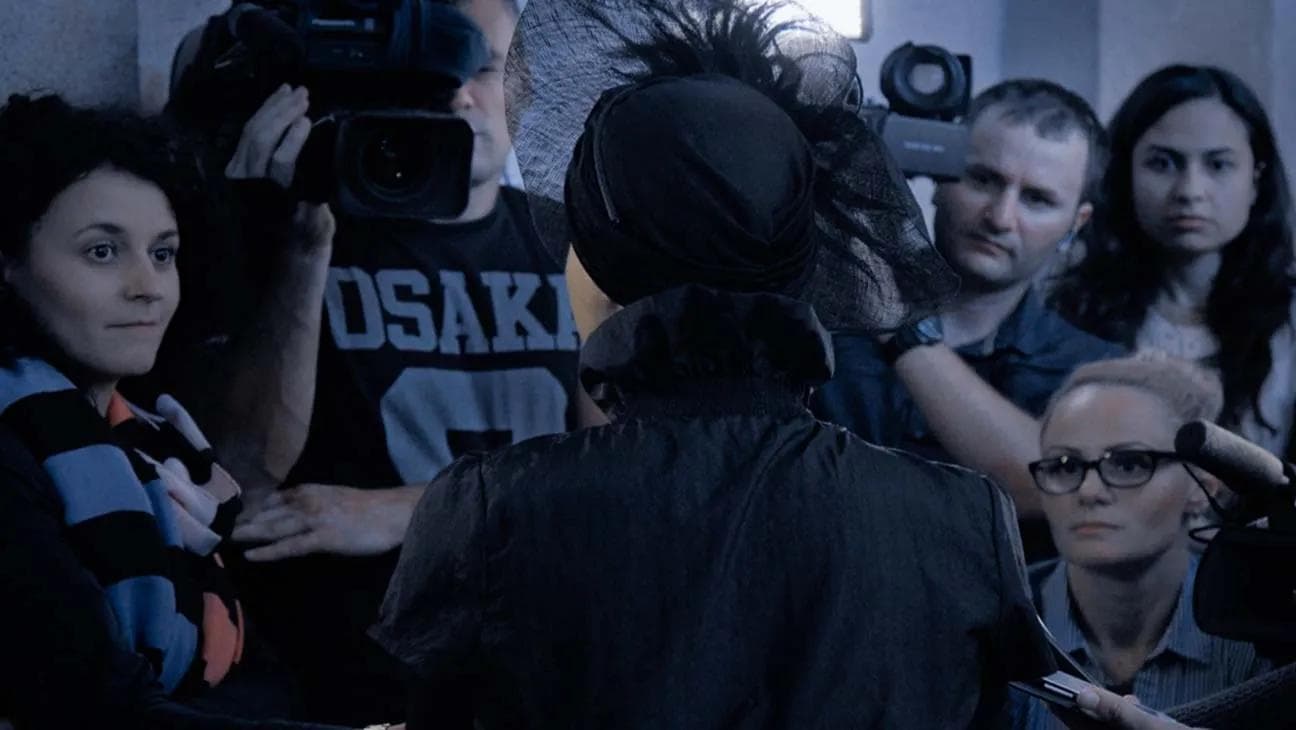
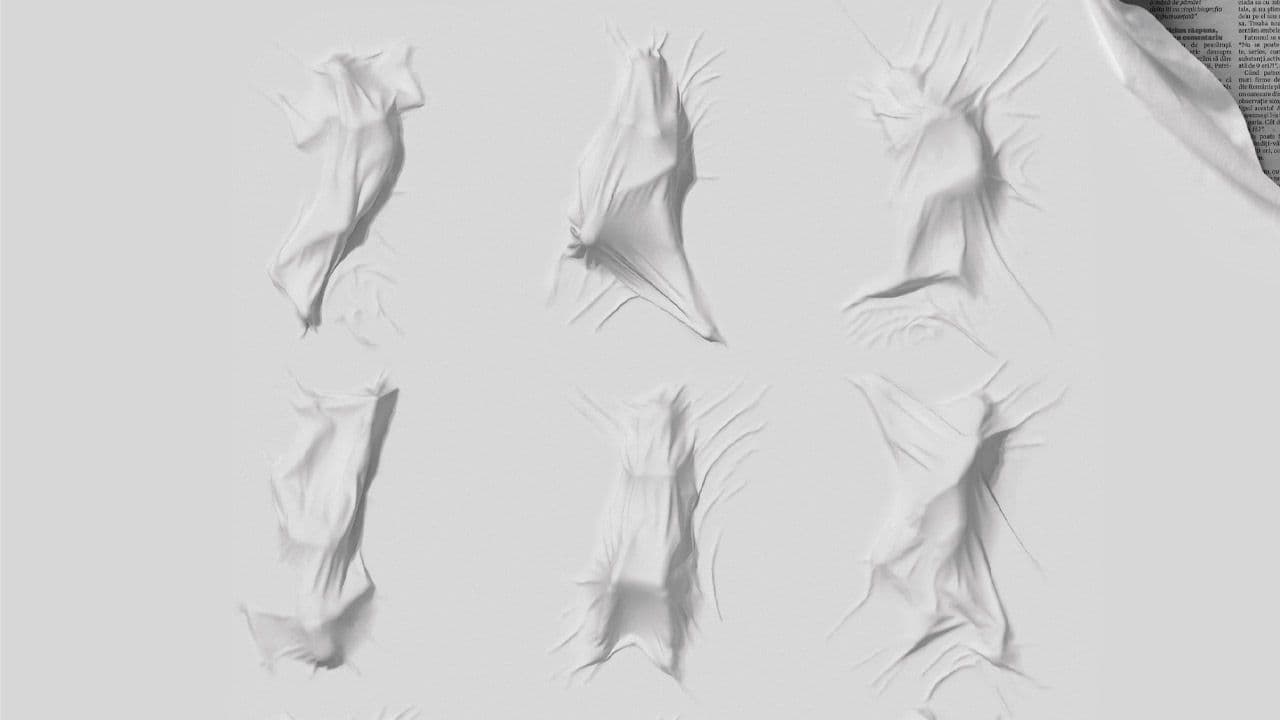
Featured Videos
Official Trailer
Memorable Scene
Comments
Loading comments...